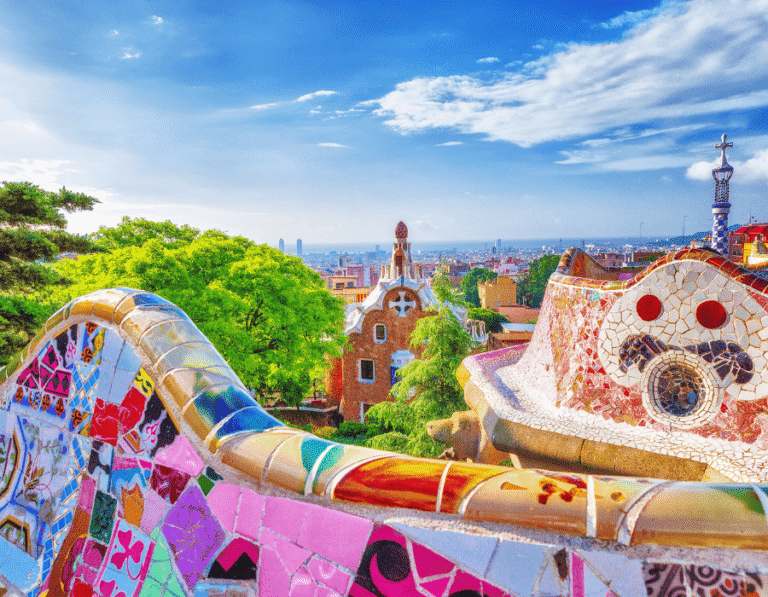Italy is undoubtedly one of the most iconic destinations in Europe – from its rich culture and history, and of course, the food; the Mediterranean country boasts impressive sights, sounds, and experiences for both locals and visitors alike.
The country consists of a peninsula bordered by the majestic Alps and several islands surround it. Rome is the capital city, and other major cities include Milan, Naples, Genoa, and Venice – with the Vatican City being an independent state. Each with its own unique cultures and traditions. While there are approximately 34 native living languages, Italian is the official language.
Italy offers an excellent standard of living and quality of life for its vibrant population. In fact, it has a high average life expectancy, reaching 85.1 years for women and 79.6 years for men—achievements resulting from successful welfare practices and well-established healthcare policies.
If you are planning a trip to Italy, then this healthcare guide will give you everything you need to know to stay safe and informed during your stay.
Contents
- Healthcare Basics
- Cost of Healthcare in Italy
- Available Payment Methods
- Seeing a Specialist
- Drugstores and Pharmacies
- Hospitals and Clinics in Italy
- Emergency and After-Hours Healthcare
- Tips for Tourists
Healthcare In Italy – The Basics
The quality of healthcare facilities in Italy varies from region to region, with the north having a more comprehensive range of medical centers and clinics compared to the south.
Italy has a mixed public and private healthcare system, with healthcare recognized as a fundamental right and provided to everyone under Universal Healthcare.
According to the World Health Organization, Italy’s healthcare system has been ranked the second-best worldwide in terms of performance, and Italian doctors are generally highly qualified.
Public Healthcare
Italy’s healthcare system is a regionally based national service known as Servizio Sanitario Nazionale (SSN), which provides universal coverage to citizens and residents. SSN provides public healthcare mainly free of charge.
Treatments covered by the public health system and a small co-payment include:
- Tests
- Medication
- Surgeries during hospitalization
- Family doctor visits (GP)
- Medial assistance provided by pediatricians and other specialists
- Out-patient treatments and dental treatments are also available
Public healthcare facilities across the country vary in quality depending on the region, and some public hospitals fall below the standard that some expats are accustomed to.
Expats employed in Italy can qualify for the local government healthcare network by visiting the nearest local health authority, the Aziende Sanitaria Locale (ASL), and registering with a doctor. European Union citizens moving to Italy can leverage mutual healthcare agreements with their native countries by applying for form E111 at least three weeks before traveling to Italy. Non-European citizens moving to Italy are required to have private insurance coverage.
Limitations of public healthcare in Italy include limited availability of primary care physicians and crowded doctor’s offices with appointments typically unavailable on a first-come-first-serve basis. Additionally, most GPs under the Italian National Healthcare Service do not speak English, and hospitals can be large and confusing.
Private Healthcare
Wealthier Italians and expats may prefer to opt for private health insurance, which allows them to choose doctors and specialists freely and receive treatment at private hospitals, avoiding long queues and waiting lists.
While the quality of service and comfort at private hospitals are typically superior to state facilities, the quality of care is likely to be similar. It’s important to note that some treatments at private medical facilities in Italy can be costly without private health insurance.
Cost of Health Care In Italy
Italy offers universal healthcare coverage, but not all services are completely free. Most services require cost-sharing, and patients are responsible for paying for many treatments. These co-pay fees, known as “Tickets,” apply to specialist consultations, diagnostic procedures, lab analyses, and emergency room visits.
The amount of co-pay fees varies by region and depends on the type of treatment and the patient’s status. Low-income individuals and those with serious illnesses may qualify for exemptions.
General practitioners typically negotiate an hourly rate of approximately EUR 25 with the government. Private medical care costs more, ranging from EUR 50-124 for general practitioners, EUR 80-200 for specialists, and around EUR 100 for dentists. Providers, whether public or private and under contract with the SSN, cannot charge more than the scheduled fees.
Available Payment Methods
In Italy, card payments are the most common payment method. However, PayPal is also as popular throughout the country.
Doctors And Specialists In Italy
Self-employed and independent GPs and pediatricians provide primary care under contract with the National Healthcare system. They receive capitation fees based on the number of patients on their list, and additional allowances for providing care to specific patients or meeting quality or spending targets. GPs and pediatricians who work in remote areas receive additional payments per patient.
Group practices have become increasingly popular, especially in the northern part of the country. GPs and pediatricians in group practices receive additional payments per patient and for employing nurses or secretaries.
Seeing A Specialist
Many Italians opt for private medical centers for specialist consultations due to increased comfort, flexibility in scheduling appointments, faster access to medical assistance, and closer doctor-patient relationships.
However, referral consultations with a specialist can also be arranged by a primary care physician at public healthcare centers or at private centers with an NHS agreement. These services require co-payments.
If you choose to see a specialist through the Italian NHS, your referral will be in the form of a red prescription. Urgent appointments (within 10 to 30 days) are available for urgent needs.
To book your appointment, you can use the regional CUP (Centro Unico di Prenotazione Regionale) by calling or booking online. You cannot choose your doctor, and the earliest available appointment will be assigned to you.
Drugstores And Pharmacies
Pharmacies in Italy are typically small, family-owned businesses that specialize in medical supplies and can generally fill most prescriptions. Pharmacists are knowledgeable and efficient, and may even recommend medication without a doctor’s prescription.
Look for the green cross outside the window to identify a pharmacy, which generally operates during shop hours from 9am to 12:30pm and 3:30pm to 7:30pm.
In larger cities, 24-hour pharmacies are available for expats and tourists, while those in rural areas may have more limited options for after-hours medication. Patients covered by state health services qualify for subsidized rates on most medication, but it’s always wise to ask about generic brands for long-term prescriptions.
Prescription drugs are divided into three tiers based on clinical effectiveness and cost-effectiveness:
- Tier 1 (Classe A): includes lifesaving drugs and treatments for chronic conditions and is typically covered in all cases.
- Tier 2 (Classe C): includes drugs for all other conditions and is not covered by the SSN.
- Tier 3 (Classe H): comprises drugs that can be delivered only in a hospital setting.
Hospitals In Italy
Hospitals in Italy are a mix of public, private nonprofit, and private for-profit establishments. Most private hospitals are under contract with each region, while public hospitals may engage in private activities. Public physicians who consult with private patients in public hospitals must pay a portion of their extra income to the hospital.
Private hospitals operate in agreement with the Italian National Healthcare Service and can be accessed with the Italian Health Insurance Card (Tessera Sanitaria) under certain conditions. While private hospitals may not always have emergency rooms, those that do can be accessed through public healthcare.
List of International Hospitals
Rome Italy:
- Rome American Hospital: Via Emilio Longoni, 69; +39 06 22551
- Concordia Hospital: Via delle Sette Chiese, 90; +39 06 5160 0248
- Salvator Mundi International Hospital: Viale delle Mura Gianicolensi, 67; +39 06 588961
Florence Italy:
- Ospedale Santa Maria Nuova: Piazza Santa Maria Nuova, 1; +39 055 69381
- Ospedale Pediatrico Meyer: Viale Gaetano Pieraccini, 24; +39 055 56621
- Hospital of Innocents – Piazza della Santissima Annunziata, 12; +39 055 20371
Milan Italy:
- Milan Medical Center S.R.L.: Via Angelo Mauri, 3; +39 02 4399 0401
- San Raffaele Hospital: Via Olgettina, 60; +39 02 26431
- Ospedale Niguarda Ca’ Granda- Piazza dell’Ospedale Maggiore, 3; +39 02 64441
Naples Italy:
- Ospedale Antonio Cardarelli: Via Antonio Cardarelli, 9; +39 081 747 1111
- Ospedale Evangelico Villa Betania: Via Argine, 604; +39 081 591 2111
- Note that ambulance services are not usually available for public hospitals in this area.
Health Centers & Clinics In Italy
Out-patient specialist care is generally provided by local health units or state and private accredited hospitals contracted with them. Self-employed specialists contracted by the SSN typically provide out-patient specialist consults, paid an hourly fee negotiated between trade unions and the government. Out-patient care payment rates are determined by each region, with national averages serving as a reference.
Out-patient specialists consulting public patients cannot bill above the fee schedule but can consult with private patients without any limitations. Pharmacies in Italy also operate as walk-in clinics for minor ailments and are usually the first point of medical advice for most Italians, given pharmacists’ particular level of medical training.
Emergency And After-Hours Healthcare
In case of a medical emergency in Italy, call 118. However, those with limited Italian may struggle to find an English-speaking operator. English speakers and those who speak other foreign languages can dial the general EU emergency number: 112.
Emergency services in Italy tend to be reliable and responsive, but waiting times for ambulances may be longer in rural areas. Visitors and expats should keep the number of their home country’s consulate or embassy on hand for emergencies.
Tips For Tourists In Italy
Italian culture is the epitome of an effective way of life. In these cultures, people want to express their emotions openly and even spontaneously. It is welcomed and accepted to show emotion: express them immediately, openly, and passionately. Typically, Italian people are warm and gregarious, using their hands to gesture and expressing their emotions both visibly and openly. Italians also communicate a lot with their facial expressions and body language and have difficulty connecting with people who do not. For instance, people will think you are rude if you don’t smile while greeting someone or introducing yourself.
It is best not to talk about money straight away since it is a delicate issue for Italians. For many centuries, the Church called money “the devil’s poo”, and even today, there’s still something dirty about it. It’s best to spend a few minutes discussing other matters before discussing financial aspects.
In hospitals, most nurses provide medical care, i.e. take blood, administer medication, check pulses, and bring bedpans. But this is all they do. They do not assist with regular care. The hospital generally expects family members to be available for primary care and needs – such as washing and cleaning. You will have to bring your own towels, soap, etc.
Some Useful Phrases:
As with many cultures, knowing even a few phrases in the local language will go a long way. Even if you only master a few essential words, chatting to locals will be more rewarding.
- Please: per favore
- Thank you: grazie
- You’re welcome: prego
If you are a tourist in Italy and would like to speak to a medical professional connected to an international network of doctors, you can make an appointment on the Air Doctor app right now and have an in-person or virtual consultation within minutes.












